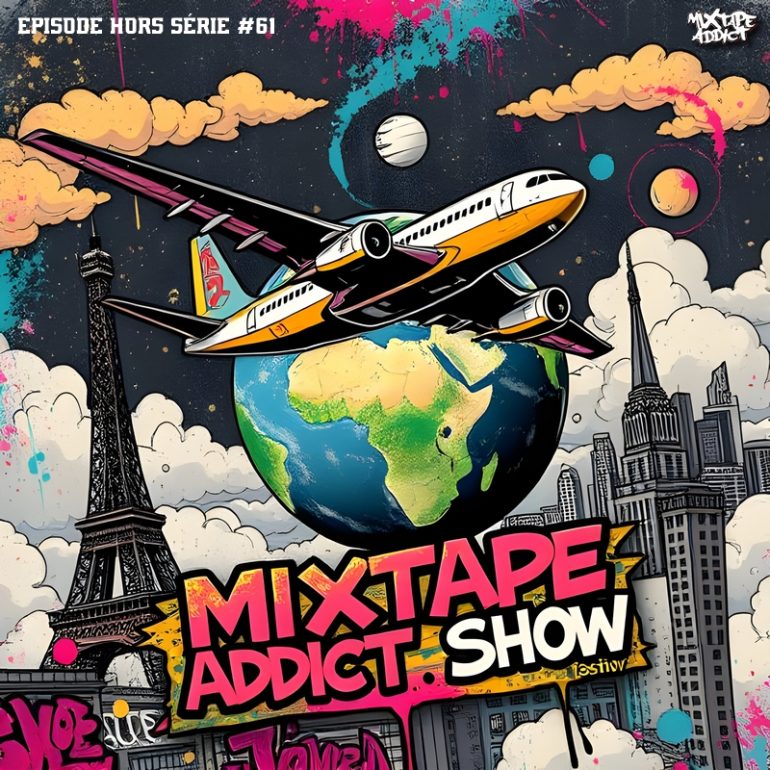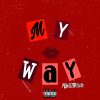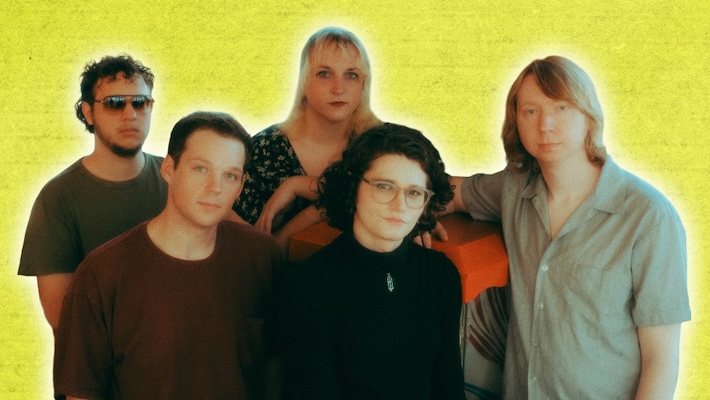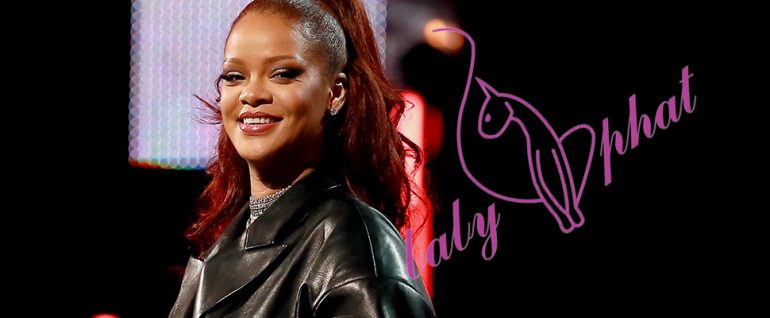-
 play_arrow
play_arrow
DisnDat HITZ DisnDat HITZ
-
 play_arrow
play_arrow
Warlando Hitz Warlando Hitz
-
 play_arrow
play_arrow
DisnDat Tunez Reggae,Dancehall and Afro Beats
-
play_arrow
Allow Us to Re-Introduce Ourselves
On behalf of my friends and neighbors, I’d like to pronounce Greet Death as honorary citizens of San Diego. Like countless childhood friends who came of age in the early 2000s, co-vocalists Logan Gaval and Harper Boyhtari initially bonded over Blink-182 and, to this day, their press materials ask listeners to “think of them as small-town Michigan’s Tom DeLonge and Mark Hoppus.”
By the time they were writing their first songs together in 2011, the duo were fully “surf-pilled”; Until now, I never once heard a contemporary musician describe Wavves as a life-altering band. Over the past three years, I’ve seen Greet Death twice at San Diego metal venue Brick By Brick, and each time, Gaval did the one thing most likely to win over the crowd, aside from covering “All The Small Things“: not only saying how much he loved playing in San Diego, but also, Los Angeles was a sh*thole full of frauds.
Gaval’s affinity for America’s Finest City wouldn’t be as noteworthy if it wasn’t such a flagrant break of character. He is in a band called Greet Death, signed to a label called Deathwish, Inc., touring projects called New Hell and New Low that might actually undersell the depressive mood therein. From their 2017 debut Dixieland, named for a flea market in their notoriously blighted hometown of Flint, Michigan, Greet Death have been a leading light in the wave of bands that have applied a doomgaze lens to the Rust Belt despair of Red House Painters and Jason Molina. Some of their more upbeat songs have titles like “Do You Feel Nothing?,” “You’re Gonna Hate What You’ve Done,” and “I Hate Everything.”
Greet Death’s third album is every bit as excellent as its predecessors and whether or not it’s the best, it’s undoubtedly the brightest. That’s all relative, of course — it’s still called Die In Love. Yet, the contrast embedded in the title betrays a very different experience than the total despondency of New Hell and New Low. Acoustic ballads are allowed to exist in a state of tender beauty without any piledriving riffs, optimism is portrayed as something that can be earned and owned rather than briefly on loan.
The songs of Die In Love themselves do not shy away from the brutal accounting of that process; Gaval’s grandmother passed away during the making of 2022’s New Low, while his girlfriend lost her grandmother and uncle. “Everybody struggles in a roundabout way,” he sings on the album’s very first lyric, a familiar sentiment of suffering that still feels new in its global application. Meanwhile, on “Emptiness Is Everywhere,” Boyhtari reflects on her father losing his oldest friend and coping with the certainty that the same thing will eventually happen to them.
Greet Death is more of a band than they’ve ever been — Die In Love is the first they’ve recorded as a five-piece, though they stuck to their roots by recording in the basement of Boyhtari’s childhood home in Davisburg, a town of 7,000 about a half hour from Flint. Still, the relationship between Gaval and Boyhtari remains the driving force of the band.
From the beginning, they’ve made for a striking contrast in nearly every way; the significantly taller Gaval sings in a deep drone, writes in a self-described “simpleton” style and functions as both the band’s comic relief and business brain. For unexplained reasons, he uses the Street Fighter boss Sagat as his Zoom background and at various points during our conversation, he dons his Amazon delivery jacket and a Voldemort mask and muses over a Nathan For You-like business venture to make harmonica holders for “people with freakishly long necks” like himself. Boyhtari is more reserved in conversation and more vivid in her lyricism, reaching a peak on lead single “Country Girl,” an odyssey of “small town sh*t” told through horror DVDs and late-night runs to KFC; She came out as trans after completing Die In Love and sees the evolution of “Country Girl” from its origin as a “boring, 3/4 plod” into its current state as a reflection of her own self-discovery.
Neither Gaval nor Boyhtari claim any special insight into the human condition simply because they happen to be in a successful rock band, though that doesn’t stop people from assuming they might. “I did an interview on Thursday and the guy asked me what the meaning of life was,” Gaval claims. “And I was like, ‘Dude, I’m a straight up idiot. I play guitar because it’s the only thing that I’ve ever applied myself to.’”
He soon clarifies that this perspective has allowed him not to overcomplicate things on Die In Love, to express not only the struggle of existence in the most simple terms, but also the struggle to be a good friend and a good partner. “There’s no way to say these things without sounding like a complete cornball, but it is imperative that you open yourself to the power of love and kindness and joy.”
It’s interesting to hear you talk about seeing all of the buzzy surf bands in 2010 as formative experiences. Back then, bands of that type really were blowing up overnight, getting courted by major labels, and playing festivals and late-night shows. There were absolutely downsides to those boom times, but do you ever wish, “Man, it would be nice if this whole thing would go faster?”
Gaval: The growth that we’ve experienced has always been very organic and step-by-step. And I’m grateful for that because it’s kept us really grounded. I remember when we were getting in talks with Deathwish, one of the things that we talked about [as a band] was, “All these people seem really reasonable.” I don’t think we’ve really been looking for some kind of blow-up scheme. But I do wish we could have played like some weird MTV2 YouTube exclusive, though. It’s funny that you brought up the Best Coast/Wavves power couple thing, because even if that were to happen now, there aren’t the media institutions to even write about it.
You were about to mention Hipster Runoff right now, aren’t you?
Gaval: If I was warmed up, I would have. Yeah, there’s no one who gives a f*ck about any of that stuff anymore, which is probably good, you know?
It was good in some ways, in that there were seemingly a lot more opportunities and money to go around, but a lot of the people involved weren’t really prepared to handle such sudden success. Conversely, when I talk to bands like Foxing, who you toured with recently, they have achieved an enviable level of success by most metrics, and yet they always seem on the verge of breaking up because doing music and touring full-time just gets more and more unsustainable. Especially having taken six years between LPs, was there ever that kind of conversation within Greet Death?
Gaval: I don’t really think about the music career on a month off from tour. I don’t think we’ve ever dove in face first, trying for a career in music is just mad busted. When I was very young, that was something that I definitely wanted. I wanted to make all my money from music and I wanted to always be gone and on tour. It’s nice to be able to travel the country for free and make a little bit of money on top of that. But I think to expect more than that is kind of weird and egomaniacal. “Spotify needs to be supporting these musicians, it’s not right.” It’s like, dude, who gives a f*ck about it? Your sh*t sucks. I don’t know who told you you could even make a dollar playing guitar. I think we’ve just done it because we love music and me and Harper are always trying to write the best song, you know? And it hasn’t happened yet, so I guess we gotta keep swinging.
Boyhtari: I mean, we were really hungry when we were young. We were ready to kill ourselves on the road, and we did that for a while. But we don’t put any pressure on ourselves to do this. And that doesn’t mean we’re not working a lot, because songwriting is just what Logan and I do. It’s just like, of course we’re going to do that. And it’s not like we’re on a label that puts pressure on us to make music. If we have to keep working menial jobs for the rest of our lives to make music, like, that’s fine. We’ve been doing that already. And I’m pretty happy.
If you don’t mind me asking, what do those jobs happen to be at the moment?
Boyhtari: I’m a cook in a kitchen. [Before that], I did phone rep stuff at a music retailer, which was pretty miserable.
Gaval: So I deliver packages for Amazon [interrupts conversation to put on his Amazon jacket]. It’s like my favorite job I’ve ever had, before that I worked in a warehouse. But the throughline of all of these is that they’re jobs that don’t mean anything. So I can send emails to the graphic designer or work on lyrical ideas on my phone. Since 2019, I’ve had jobs where I can f*ck off and work on Greet Death stuff on the clock. That doesn’t seem like a failure to me. I think maybe some people would think that it is. Seeing people trying to make the music thing work when it just clearly isn’t, we’ve never been desperate to do that. Even in the early years, our motives were like, “we want to drive really far away and play a sh*t ton of shows.” It wasn’t like we need to play or make this amount, because then our parents will think that we’re not failures. We’re very lucky that our parents never did that to us.
Still, being the front-facing people in a band means that, in some way, you’re bosses of a corporation that other people depend on for their livelihoods. How have you grown into those roles as Greet Death has become more established?
Gaval: I think everyone in the band is on the same page where they would do it for free even if there wasn’t any money, because like… what are we to do? Are we going to work in IT or sell health insurance? It’s been a fairly frictionless process because Greet Death is just a band made up of friends. I just text the business group chat and see what people want to do and then, 90 percent of the time, the answer is yes. If the answer is no, I’m not like, “Well, this is f*cked up.” I probably didn’t want to play that show anyways. But it is strange, because Greet Death, LLC is a thing, and I am filing the taxes late and paying astronomical fees.
Boyhtari: I will say that at the warehouse job Logan worked, he learned a lot of accounting skills and money skills. Logan’s turned into somebody who has really good management skills and you are the boss in a lot of senses. It’s helped us a lot. We would not be making nearly as much money as we are without Logan’s skills. Not that we’re making a lot of money, but I think we’re making a lot of money. Making any money playing music is crazy.
Gaval: We’re about to make a sh*t-ton.
Boyhtari: I don’t know how to make money, but I can be a good soldier and I can try to do what I’m told. And then Logan and I both write the songs. We’re good with the art side, but I think a lot of bands probably don’t have somebody with the skills and qualities that Logan does.
Gaval: Yeah, you need the autistic guy [laughs]. Every band. You need the Johnny Ramone, the Fat Mike, just zoned in. But if we didn’t have songs to sell people, it wouldn’t matter that I knew what a profit margin was or that I tried to negotiate to get t-shirt prices down. All this stuff is secondary and the main thing is that the art is good. I don’t like calling them that, but we do care about creating the songs as products, as things that are interesting to listen to. With that being said, I have read multiple cringeworthy business management books. If I told you the audiobooks I have listened to, nobody would f*ck with me ever again.
I’m not gonna lie, I’ve read several Brene Brown books on leadership just to get a better sense of how my higher-ups think and maybe even imagine myself daring greatly as a leader.
Gaval: There’s a golden nugget in every pile of sh*t that is those self-help, money business, cognitive behavioral therapy books. You just have to be honest about what it is, that you are listening to an audiobook of “The Richest Man In Babylon” or “The Secret Of My Art” or whatever. There’s a lot I don’t know that I want to know, so I pay attention to stuff like that, it just frees up money for us to do cooler sh*t.
Well, since you mentioned cognitive behavioral therapy, are you ready to talk about depression? I’m thinking specifically of Feeling Great, which is this CBT handbook that describes depression and anxiety as “the greatest cons,” that they’re lies we tell ourselves. I’m curious about what you see as the roots of depression, whether it’s environmental, genetic or situational.
Gaval: As a disclaimer, I think I graduated with like a 2.6 and I’m not even smart enough to remember the name of the tests that they take in Michigan. I think it’s the ACT and, well, I got an 18 on that sh*t. So I’m not an intelligent person, but in my own experience, depression has been a constant struggle for as long as I can remember, and there are definitely days where it is influenced by thoughts that I’m acknowledging as truths. And then there are days where it feels like I straight-up have the flu, you know? And when I have the flu, I’m not trying to intellectualize it and think about why I have the flu. You need to edit what I’m saying so that I sound smarter, but in our society… or let’s not even say that… like, if you walk up to any band of four people, half of them are gonna be on SSRIs. And that’s fascinating to me because is that actually some sort of brain chemistry thing happening ,or is it because all media for the past few decades has been glorifying people like Kurt Cobain and it’s actually cool to be sad and nihilist and have a worldview that everything is f*cked and there’s nothing you can do so you might as well rock the f*ck out?
I think the only thing that ever helped me with all of that was to stop thinking about if it was a societal thing or a chemical thing and to let go of my thoughts and not acknowledge those as truths — impostor syndrome, whatever. These days it’s harder and harder to do that because you have groups of people that are constantly commenting that you’re like a fraud or that your sh*t sucks.
I do think a lot of artists struggle with how substance use or depression ties into their art, that they’re worried about what the music will become without it, or that they need to go deeper into it for the sake of the art. Were there ever more upbeat or happy songs that were set aside because they didn’t mesh with the greater Greet Death reputation?
Boyhtari: We’re writing some pretty optimistic stuff these days. If it’s something that resonates with us and sounds like Great Death, we’ll give it a shot. There is no mission statement where Great Death has to be depressing. It’s just that Logan and I have spent a lot of time being very unhappy people. Not to sound too dramatic, but art in general is a way to translate your feelings, you know, and a lot of times those feelings are, “How do you f*cking deal with this?” How is this something that people have to deal with? I don’t think we’re ever gonna stop grappling with the complexity of being a human being, when we have to live the way we do and life is monotonous. But I also think that we’re growing and learning to experience new things and there’s definitely the most joy in both of our lives that there ever has been.
Gaval: While the things that me and Harp write about are uncomfortable, at the end of the day, we are trying to create something that is beautiful. None of our songs are minor-key, swampy, spooky, you know what I mean? At the end of the day, I do want to create something beautiful, but I’d also hope that the message in the lyrics was honest.
I think there’s an optimism coming through even in songs titled “Emptiness Is Everywhere” and “Die In Love,” or at least an intention to appreciate the good things in life while they’re still around. What gives you reason to be optimistic these days?
Gaval: In my own battle with mental health and such, even on your worst days, you still have to be thankful that you’re here having an experience. There are still things that happen that are funny and that are worth celebrating. I don’t think you really have a chance of doing anything in this life if you don’t do that. Love is an interesting thing because if you talk to people that have been married for decades, they will tell you that love is not all good times. There are things that you will have to go through with your partner that are difficult and stressful, so how can you not draw some sort of inspiration from love? And how can you not make weird, ironic titles and juxtapose depressing lyrics with major-key chord progressions? It seems like a fitting topic for the style of music that we make.
I’ve been reading a book called Stream Big about the explosion of Twitch influencers, and the most interesting thing to me wasn’t just how a lot of their audience rely on them for some kind of mental health support, but that the streamers actually provide it, whether it’s just some words of encouragement. You’re almost like a mandated reporter in that position. Given the kind of music you make, are there fans who’ve come to you with similarly heavy stuff?
Gaval: Yeah, of course. When I was in a worse place with everything mentally, whenever people would come up to me and be like, “You know, your music has really helped me through a hard time,” my first thought was always, “Well, what about me?” Like, my music is ruining my life. It’s no wonder that I was so miserable, you know? I didn’t ask to be some weird parasocial therapist, but I am grateful for it and I think nowadays I’m willing to take on that task. If there’s a song I can write that will help someone for one moment, that’s probably the most important thing I could do with my life. Me and Harp constantly get people that come up to us and tell us their story about how, “Oh, I was feeling really bad and I was thinking about doing something crazy, but then I heard this album and I just felt seen.” I’ve had experiences like that. Sometimes you have the worst day ever and then you hear a song that, for a moment, gives you some sort of peace.
Boyhtari: My favorite kind of art, like, the art I care about, is the stuff that makes me feel less alone and seen, for lack of a better word. The music that’s done that for me has meant so much, and that’s the highest honor. And it’s already happened, so I already feel like we’ve won. Because like that’s an amazing position to be in and I’m just so grateful that we have been able to give that to people. I’m not saying it’s a substitute for therapy, but it is special.
Die In Love is out 6/27 via Deathwish. Find more information here.
Written by: dev
Similar posts
-
Recent Posts
Recent Comments
Featured post

Latest posts
Current show

Mixtape Addict Show
On the Mixtape Addict Show, host DJ King Flow brings global hip-hop culture straight to your speakers. With broadcasts spanning Europe, Canada and the USA, the show blends curated mixtapes, deep cuts and serious DJ craft.
closeUpcoming shows

ChillBeats
Presented by Monica Deep
12:00 am - 3:00 am
Art Of Gossip
Monday and Friday at 23:00
3:00 am - 6:00 am
House Of Fashion
With Veronica and Nina
6:00 am - 9:30 am
Pop’n Roll
Mixed by Rebecca Lost
9:30 am - 2:00 pm
Sick Beats
Dj Smash will make you move
2:00 pm - 7:00 pmChart
-

Mixtape Addict Show
On the Mixtape Addict Show, host DJ King Flow brings global hip-hop culture straight to your speakers. With broadcasts spanning Europe, Canada and the USA, the show blends curated mixtapes, deep cuts and serious DJ craft.
close Chart
-

3
play_arrowMyway
The Real Gabbana
Top popular

Most NSFW Hip-Hop Videos of All Time

Fat Joe Says He Thought He Had The Best Verse On "We Takin' Over" Until Lil Wayne Sent His Verse Over!

Flo Milli Shares ‘Fine Ho, Stay’ Album

The Best Bourbons Under 100-Proof, Power Ranked (2025)

Drake and NBA Player DeMar DeRozan Have Beef, Caught on Camera
Quick links
Our radio.
COPYRIGHT All rights reserved.
Site Design by Superior Business Solutions.











